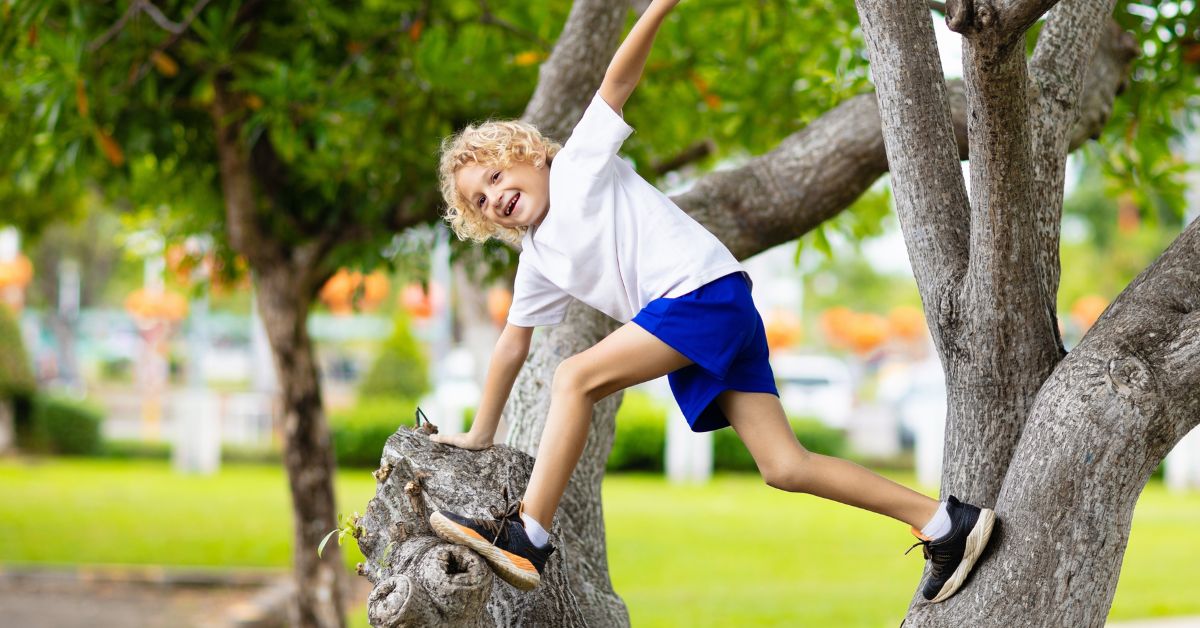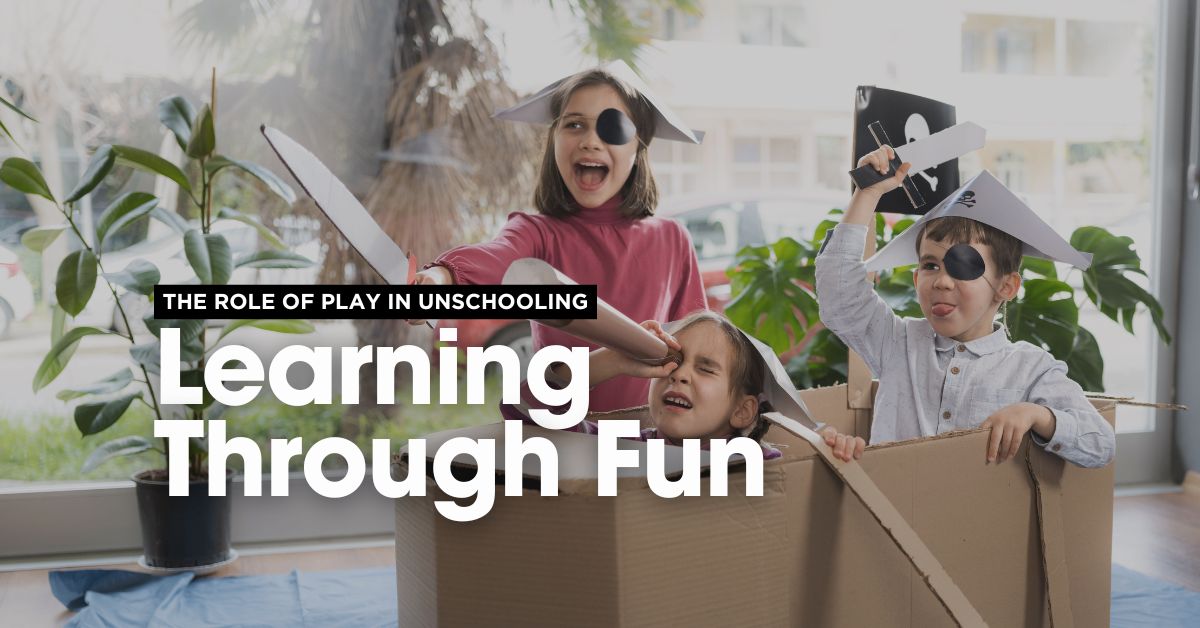Unschooling is a unique approach to education, relying on a child’s natural curiosity and interests to guide their learning. Play plays a huge role in this model, as it merges joy with discovery, fostering meaningful growth. Incorporating fun unschooling activities into your child’s day supports this idea, proving learning doesn’t have to come from textbooks alone.
Below, we’ll explore methods and actionable ways to use play as a platform for education in unschooling environments.
Why Play Is Integral to Unschooling
Play forms the foundation of unschooling’s success because it empowers kids to explore, experiment, and learn at their own pace. Unlike structured educational approaches, play encourages intrinsic motivation. When children are given the freedom to follow their interests, they develop independence, problem-solving skills, and emotional resilience.
Research supports the critical link between play and brain development. Activities such as building with blocks, role-playing, and outdoor exploration enhance cognitive, social, and physical skills. Play also helps kids make real-world connections. For instance, a game of pretend “restaurant” teaches them math through pricing items or managing payments while also nurturing creativity and collaboration. Such hands-on experiences are invaluable in unschooling.
Types of Fun Unschooling Activities
Integrating play into unschooling can be seamless and tailored to your child’s interests. Below are some ideas to get you started:
- Outdoor Adventures:
Nature walks turn into science lessons as kids observe plants, birds, and insects. You could add scavenger hunts to reinforce learning in a fun way.
- Board Games and Puzzles:
Games like Scrabble strengthen vocabulary, while strategy games improve critical thinking. Look for educational board games that reinforce specific skills like math or geography.
- Creative Art Projects:
Encourage painting, clay sculpting, or even DIY inventions. Art connects children with history, culture, and self-expression.
- DIY Science Experiments:
Simple experiments, like making a baking soda volcano or testing how different objects float, seamlessly incorporate principles of chemistry and physics.
- Cooking Together:
Cooking involves math (measuring ingredients), science (chemical reactions when baking), and teamwork. Plus, experimenting with recipes empowers kids to be self-sufficient.
- Role-Playing Games:
Games like setting up a pretend store involve math, negotiation, and social skills. Similarly, role-playing historical moments builds understanding of history.
- Building Challenges:
Give your kids open-ended materials like LEGOs, magnet tiles, or recycled objects to build their imaginative creations. These encourage engineering and structural thinking.
These activities prove that even playtime can embed valuable lessons for kids.

The Organic Nature of Learning Through Play
Play-based learning in unschooling is more adaptable and less rigid than traditional methods. Organic, informal experiences—such as observing animals in the backyard—can teach children about biology without formal curriculum constraints. Many unschooled children also find opportunities to pursue deeper knowledge in areas of passion through play. A child fascinated by space, for example, may build model rockets, play space exploration games, and gradually learn about propulsion systems.
True learning flourishes when it happens naturally rather than being forced, and play creates a relaxed atmosphere where children feel free to engage and explore. This often leads them to unexpected discoveries, sparking further interest in areas they might not have explored in a formal schooling environment.
How Play Promotes Lifelong Skills
One of the most significant benefits of unschooling through play is how it equips kids with essential skills they’ll carry throughout life. For example, cooperative games or group play teach teamwork and problem-solving, while solo pursuits like puzzles cultivate persistence and focus. By tinkering with toys or conducting DIY experiments, children learn to hypothesize, troubleshoot, and adapt when their plans don’t work out as expected—an essential mindset in any career or discipline.
Additionally, play builds emotional intelligence. Games that involve decision-making help children process emotions like frustration or excitement. Learning to lose gracefully or empathize with others during play fosters interpersonal skills that prove vital in adulthood.
This skill-building goes beyond mere “playtime”; it demonstrates how deeply learning and play are intertwined in unschooling.
Tips for Encouraging a Play-Based Unschooling Environment
To maximize the benefits of play in unschooling, create an environment that promotes curiosity and spontaneity. Below are some tips for fostering play-based learning:
- Design a Flexible Space:
Dedicate an area in your home to imaginative play and creativity. Include items like art supplies, building blocks, musical instruments, and open-ended toys.
- Be a Facilitator:
Offer suggestions or provide tools when needed, but allow your child to lead the play. Resist the urge to manage or over-direct.
- Follow Their Interests:
Support ideas or games your child gravitates toward. If they love animals, help them set up a pretend vet clinic or zoo.
- Encourage Multi-Age Play:
Encourage siblings or neighborhood kids of different ages to play together. Older children model skills for younger ones, while younger kids help older ones practice patience and leadership.
- Integrate Learning Sneakily:
Turn routine activities into playful learning moments. For instance, convert household chores into games like “beat the timer” to teach responsibility and time management.
- Rotate Activities:
Keep things fresh by rotating toys and activities. This prevents monotony and sparks renewed curiosity.
Creating an environment where play is prioritized doesn’t require elaborate planning—it only takes attentiveness to your child’s needs and the opportunities around you.
Balancing Freedom and Structure
Unschooling often prioritizes freedom, but that doesn’t mean structure can’t exist within a play-based framework. A balanced approach ensures children feel secure, while also leaving room for exploration. You might establish a daily rhythm rather than a rigid schedule, for example. Allow your child to select which activities interest them but provide guidance by curating options that are engaging yet educational.
It also helps to create traditions or routines around certain types of play. Maybe Tuesdays become “science experiment afternoons,” or evenings are reserved for family board games. These light structures provide predictability without limiting a child’s creativity.
Remember, the focus in unschooling is always on the child’s agency. Even when structures are introduced, they should always reflect the child’s interests and aspirations.
The Social Aspect of Play
Unschooling sometimes raises concerns about lack of socialization, but play can bridge this gap beautifully. Playdates, community meetups, or group activities connect unschoolers with peers while teaching collaboration and communication skills. Games like soccer, theater improvisation, or group coding challenges offer children a chance to learn from others in a non-competitive, cooperative environment.
Furthermore, incorporating mentors or experts into play-based projects exposes children to diverse perspectives. A local artist might guide your child in a painting session, or a family friend could host a baking workshop. These interactions provide deeper experiences while showing children how lifelong learning often stems from connection.
Closing Thoughts
Unschooling thrives on the simplicity of play, where curiosity, discovery, and joy take center stage. By weaving fun unschooling activities into your child’s daily life, you can nurture a love for learning that is free of pressure and constraints. The lessons learned through play stretch beyond academic goals, fostering adaptable, confident, and inquisitive individuals who view the world as their classroom. Making space for play isn’t just about lighthearted fun—it’s about creating an enriching, meaningful, and lifelong educational experience



